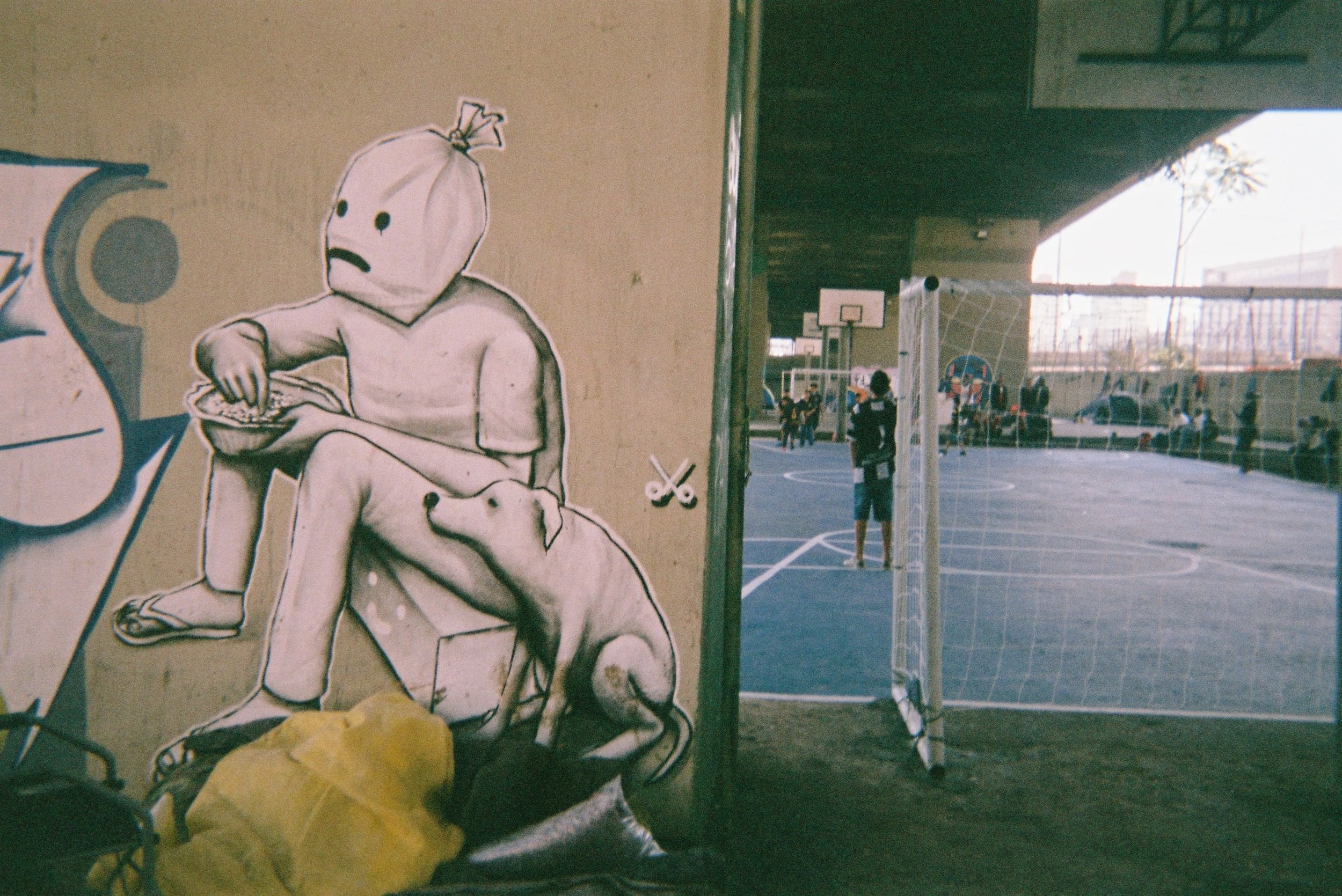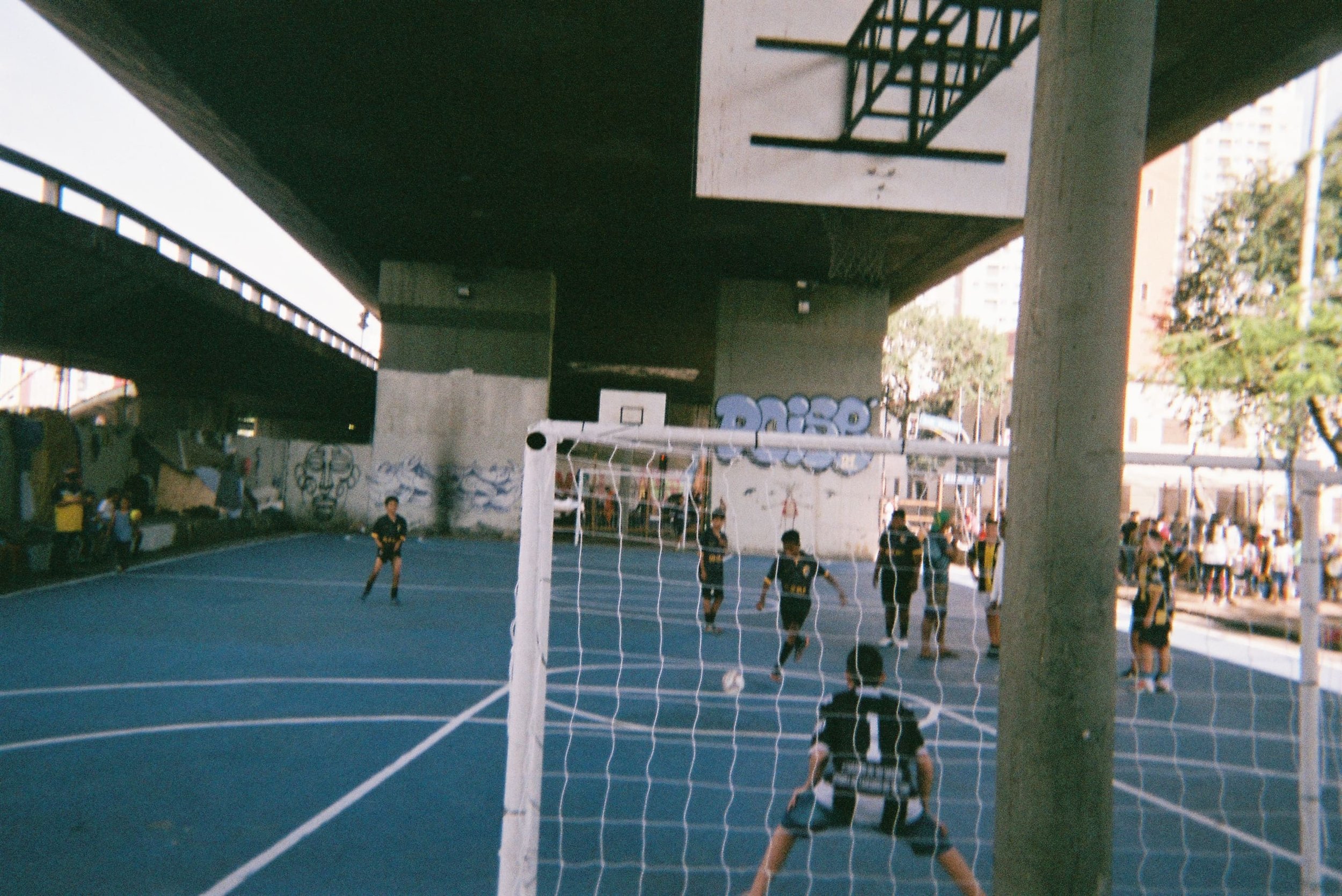The Beauty of Football
David Batista Leite, Brazil
David Batista Leite is from São Paulo and is the Founder of futsal project Gol de Bico, which was created in 2017. The project uses sport as a tool to help young people develop character for a better life on and off the pitch, working with around 60 young people from the community.
Can you introduce yourself and tell us about your current football life?
My name is David Batista Leite, I was born and raised in Baixada do Glicério in São Paulo. I am the son of migrants from the northeast of Brazil, who came to find a better life in the city of São Paulo. I am a former professional futsal athlete, and today I take care of a sports gym here in downtown São Paulo. My mother was a cleaner at the same sports gym where today I am a janitor.
I have a futsal project called Gol de Bico, a project in which we use sport as a tool to help young people develop character for a better life on and off the pitch.
Gol de Bico started in 2017, but before then my friend Flávia and I had already organised futsal championships with the children of our community since 2006. We work with young people between 10-17 years old.
We started Gol de Bico due to a lack of support and investment in sports in our neighbourhood. We were witnessing many of our young people turning to a life of crime and drug use. This really was, and is, very sad, and this situation was the motivating factor to start the project.
The main team of Gol de Bico plays in the sports league of the city of São Paulo and other championships. We play on the court where I work - Quadra Okinawa, where I have a bar (called “Bar Gol De Bico”) and I am the janitor of the gym. Within the community, we hold championships among our young people. Last year we did them with a World Cup theme, it was incredible!
What did you try to show with the photos? Was there any wider meaning with the photos?
The photos show that the beauty of football can be in places we least imagine. The photos were taken on the blocks of Praça Prefeito Passos, which is in the Baixada do Glicério neighbourhood in São Paulo. These blocks are known here as “Jânio” or “bomb”. This area has been degraded for some time. About three years ago a Psychosocial Care Center (CAPS) was installed inside the square, a project of the government of the state of São Paulo, where they welcome homeless people, drug users, and people with psychiatric problems.
The problem is that there are not always vacancies in these centres, and many of these people stay in the square waiting for vacancies. They end up camping in tents and setting up housing in the blocks that are under the bridges. Over time, the area became “Cracolândia” (literally “Crackland”, a place notorious for high drug use), a situation that made it even more impossible for our community to use the courts for sports purposes.
It became a homeless place. Families and other people live in precarious conditions, where there is everything you can imagine, except joy and sport.
It was very difficult to take these photos, we had to ask permission from drug dealers and people who had already established themselves there as owners of the place. The public abandonment there is very visible!
Can you tell us about anyone in the photos?
When these photos were taken, a joint effort was made with people from the community to clean, paint and organise the court for a social-sports event. We were able to bring hairdressers and other professionals to help these homeless people with some decent sanitation. I showed the local people in the community, the concentration of the boys in the game, a homeless man Flávio and his faithful dog Flavinho, the barber cutting people’s hair, and Flávia who is our biggest supporter.
Since Flávia’s son was shot and killed by military police on suspicion of stealing a car, she has teamed up with Gol de Bico to encourage children from the Baixada do Glicério region to practise sports and not go back to a life of crime.
We also took our U13 youth team from Gol de Bico and from the AMAAF project (Association Missionary Amigos da África) to a futsal tournament. AMAAF is an NGO that does social projects and missions in Africa and Brazil.
What are your favourite photos? Why?
One photo shows a boy with his boot torn on the outside. This portrays our essence, the concept of the "Gol de Bico" goes beyond the technical resource of futsal. The toe outside his boot shows us that often young people from the outskirts here in Brazil are not able to buy new boots, they wear them until they wear out and tear. On other occasions, we play barefoot.
I also love the photo which shows boys, football and dog mutts, a very common scene on the courts and fields of Brazil.
I wanted to show one of our boys as a dreamer who waits for the football light to arrive and illuminate him, because as the art behind him shows, he is still just a seed, he has not germinated yet.
Can you tell us about the graffiti you photographed?
“There are a lot of hungry people on the street” is a famous piece of graffiti by the “Gêmeos” here in Baixada do Glicério. Next to it we see a reflective homeless man.
The graffiti "the anguish of the garbage man" is a social criticism that portrays the street man as garbage living on leftover crumbs, with sadness reflected in his faithful squire the mutt dog. And below the art, you can see a homeless person sleeping under a yellow plastic bag and a dark blanket. This is the reality of Flávio and his dog Flavinho.
What does football mean to you, and the people of Brazil?
Football here in Brazil is a religion. It is the sport that people most identify with, both the rich and the poor. I love the social inclusion that this sport has. Football is a tool that contributes to the growth and development of many citizens. It brings joy and greatly alleviates the social conflicts that our poor people have to face here.
What is the future of football in Brazil and in your community?
Brazil is reinventing itself in sports. We are lacking in idols. We are very anxious for results, which ends up disturbing us in this process of evolution within the sport.
In the community it is no different. Many young people here get into football body and soul, as if it were the most important thing in this world. They often stop studying to dedicate themselves to this sport. Within the Gol de Bico project, we try to direct them to act more prudently in pursuit of that dream. For some young people aged 17 or over, who do not excel in sport, we try to insert them into the job market through some contacts with partner companies we have.














